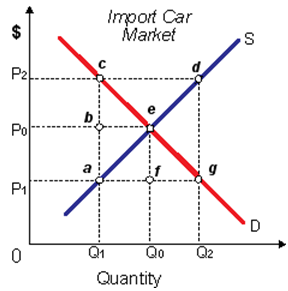American buyers would bear a tax burden of ____ when there was a U.S. import tariff equivalent to distance ac, while Japanese sellers would bear a tax burden equivalent to ____. (w) ab and bc. (x) bc and ab. (y) ac and zero. (z) zero and ac.

How can I solve my economics problem? Please suggest me the correct answer.